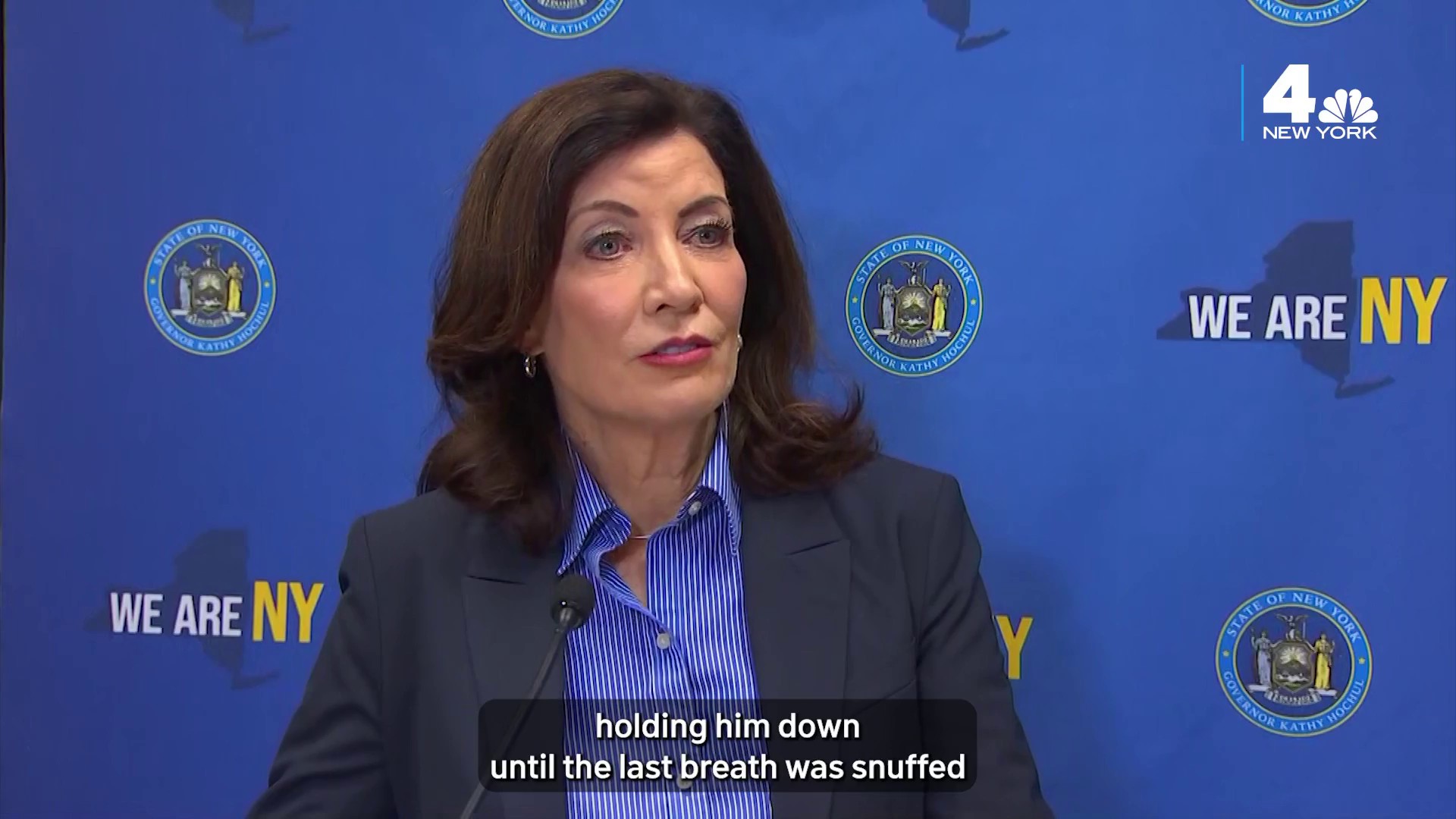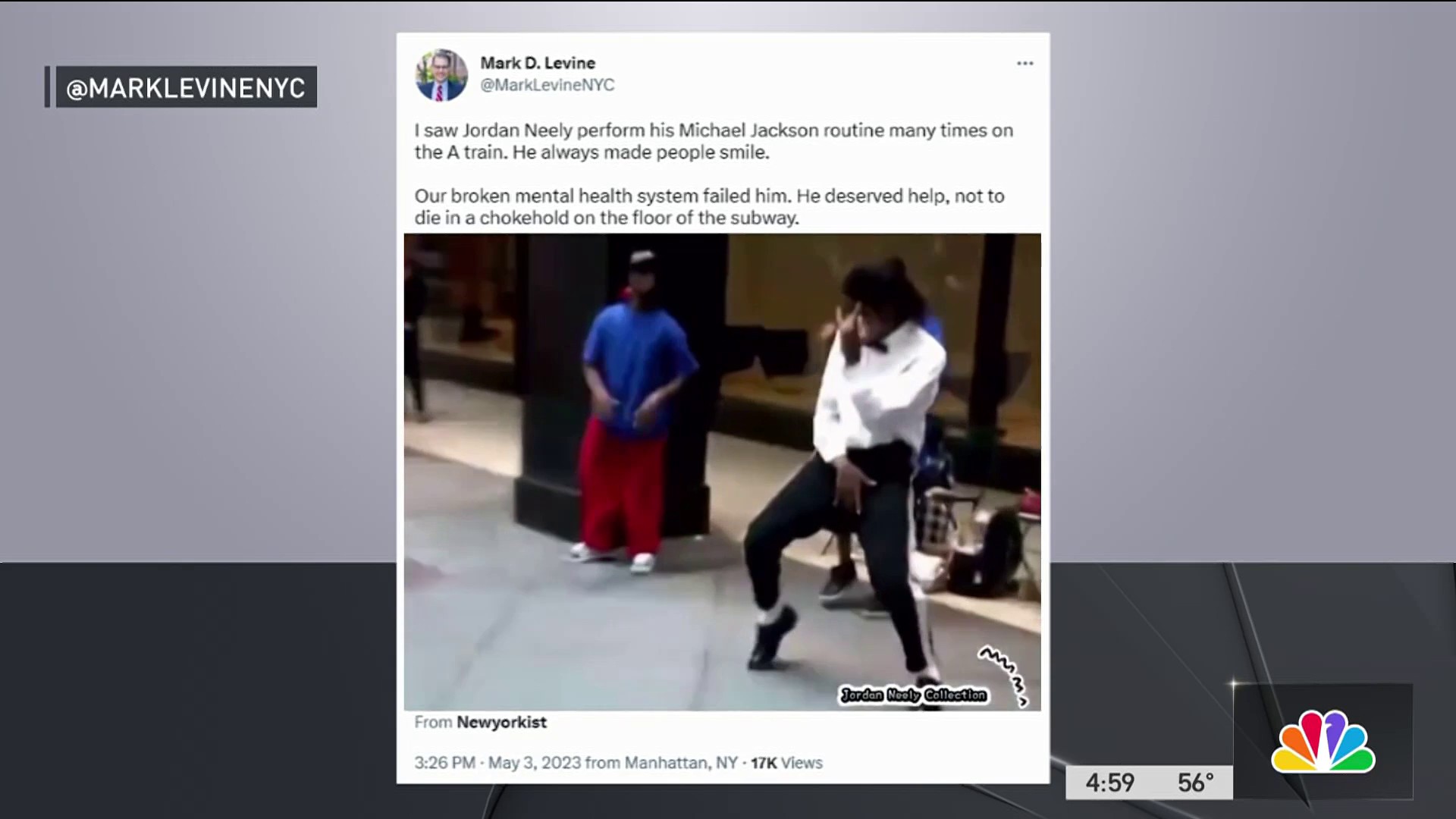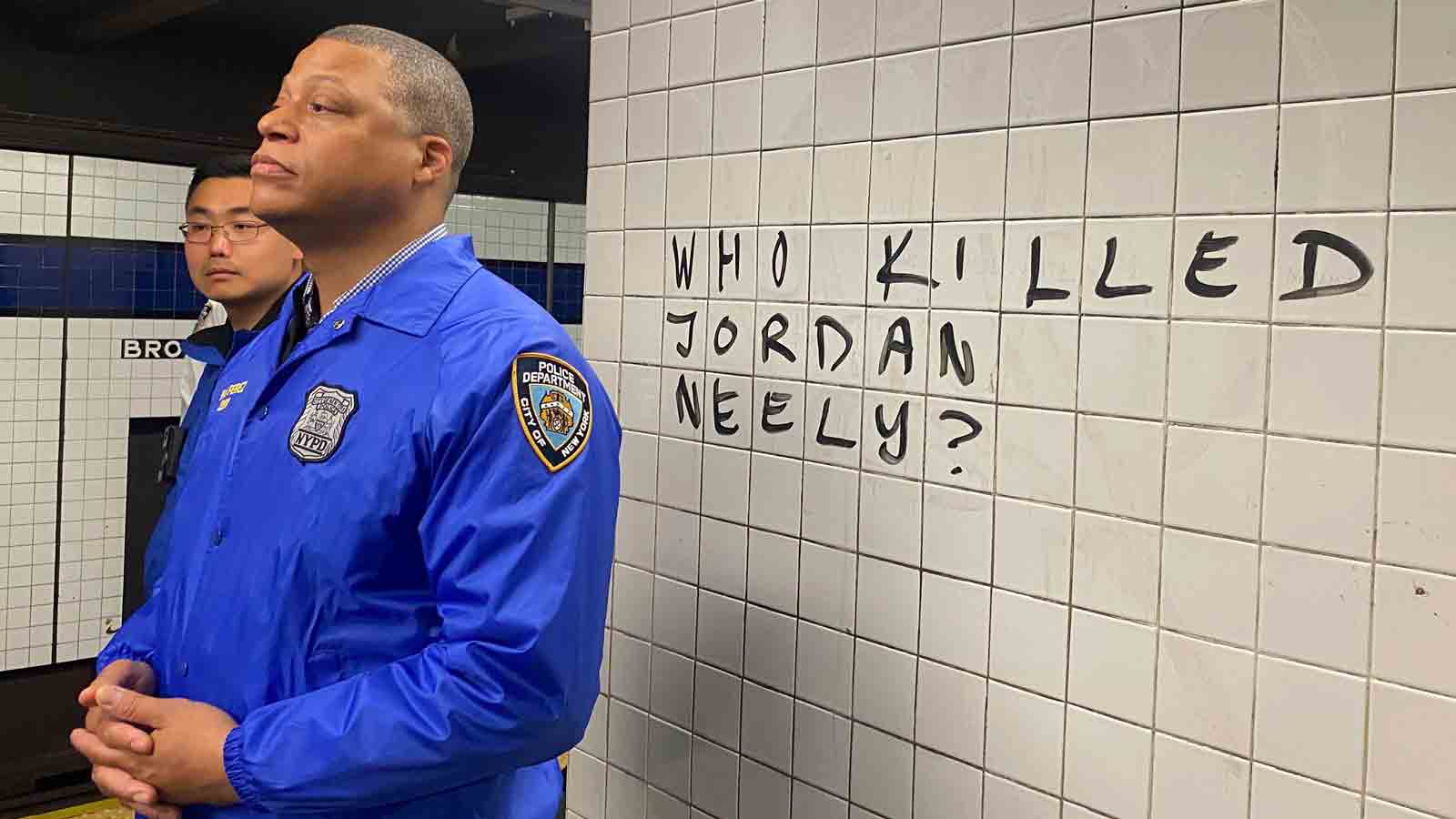What to Know
- 30-year-old Jordan Neely died on a train at the Broadway-Lafayette station in Manhattan Monday after allegedly threatening passengers and being put into a chokehold by a rider; that rider, identified as 24-year-old Daniel Penny, was questioned by the NYPD and later released from custody
- The medical examiner's office ruled Neely's death a homicide, which incited a debate around whether the rider's actions were justified defense or vigilantism
- A senior prosecutor with the Manhattan district attorney's office is looking into the case, sources say, and the NYPD is asking anyone with footage or images of what led up to Neely's death for help
Protesters chanting "no justice, no peace," swarmed a Manhattan subway station Saturday, bringing oncoming trains to a halt after dozens jumped down onto the tracks in another day of demonstrations over the chokehold death of Jordan Neely.
New Yorkers have been protesting much of the week following the death of Neely, a 30-year-old killed on a train at the Broadway-Lafayette station Monday and being put into a chokehold by a rider. Daniel Penny, later identified by his own attorneys as that rider, was questioned by the NYPD and later released from custody.
Amid the ongoing investigation, the case has incited calls for Penny — initially hailed as a good Samaritan for intervening — to be arrested. The weekend demonstrators took their chants through the streets of Manhattan before descending to the tracks at Lexington Avenue and East 63rd Street around 6 p.m. Saturday.
Power was temporarily cut to the station, for roughly 30 minutes, as dozens stood on the tracks, preventing a Q train from entering the station and sending reverberating delays for the lines running through the station. The NYPD said 13 people were arrested in connection with the protests Saturday.
Get Tri-state area news delivered to your inbox. Sign up for NBC New York's News Headlines newsletter.
By 7 p.m., the demonstrators had mostly cleared from the station and back out onto the street. The MTA had resumed train service with some residual delays.
The head of New York City Transit, Richard Davey, said the protesters' actions jumping on the tracks "dangerous, reckless and can be life threatening."
"While peaceful protest has always been part of American fabric, endangering transit workers and other responders, while also delaying New Yorkers just trying to get where they need to go, by deliberately risking contact with an electrified third rail, is unacceptable," the president's statement read Saturday.
At one point in the afternoon, hundreds of people had rallied and marched through downtown as part of the ongoing demand to get justice for Neely's killing. The medical examiner's office has ruled his death a homicide.
A senior prosecutor was said to be looking into the matter and, according to two sources familiar with the matter, was preparing to present the case to a Manhattan grand jury, which would determine whether criminal charges would be brought against Penny.
It wasn't immediately clear when the Manhattan district attorney's office would present those details to the grand jury, the sources said Friday.
"This man had a mental issue and the way you handle that is not to put him in a chokehold and squeeze the life out of him," Rev. Al Sharpton said before the National Action Network on Saturday.
The growing outcry for justice has been bolstered by many who say they are angry and fed up with a system that failed Neely, who was living on the streets, performing as Michael Jackson while battling mental illness.
"Mr. Neely suffered from mental illness which began at age 14 when he experienced the brutal murder of his mother. It is a tragedy for all of us to know that Jordan Neely’s life was also cut short. Mills & Edwards is committed to holding accountable the MTA and Neely’s killer," his family's attorneys said in a statement last week.
During Monday's chaos, witnesses and sources say Neely was acting aggressively on the F train and said that he was hungry, thirsty and didn't care about going to jail, but had not attacked anyone before Penny put him in the deadly chokehold.
"A mental issue on a train is not to be sentenced to death," Sharpton said. "How can no one be charged? That man, Jordan Neely is dead because he was Black, homeless and angry."
Penny's attorneys released the first statement on behalf of their client Friday, saying he "never intended to harm" the 30-year-old homeless man, and "could not have foreseen his untimely death."
"When Mr. Neely began aggressively threatening Daniel Penny and the other passengers, Daniel, with the help of others, acted to protect themselves, until help arrived,' the lawyers' statement reads. "For too long, those suffering from mental illness have been treated with indifference. We hope that out of this awful tragedy will come a new commitment by our elected officials to address the mental health crisis on our streets and subways."
Since Penny's identity was made public, those seeking justice on behalf of Neely have sought to identify the two other people seen holding the man down and hold them accountable.
"I'm looking at the video, you got one man choking and the others holding him down. They all need to be in front of a grand jury," Sharpton said.




